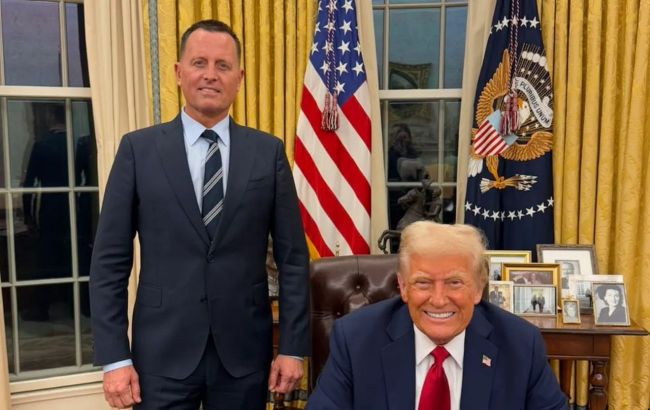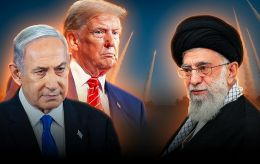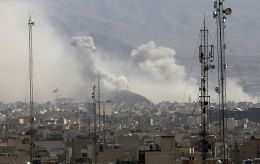Trump's special envoy sparked controversy with statement about Budapest Memorandum
 Special Envoy Richard Grenell and US President Donald Trump (photo: x.com/RichardGrenell)
Special Envoy Richard Grenell and US President Donald Trump (photo: x.com/RichardGrenell)
US Special Envoy Richard Grenell believes that Ukraine never had nuclear weapons, and the arsenal it once had always belonged to Russia. Politicians and diplomats have reacted emotionally to these statements, according to the politician's social media page on platform X.
In his post, the diplomat decided to clarify the situation with the Budapest Memorandum.
"The nukes were Russia’s and were leftovers. Ukraine gave the nukes back to Russia. They weren’t Ukraine’s. This is an uncomfortable fact," Grenell wrote.
Let’s be clear about the Budapest Memorandum:
— Richard Grenell (@RichardGrenell) March 25, 2025
the nukes were Russia’s and were leftovers.
Ukraine gave the nukes back to Russia.
They weren’t Ukraine’s.
This is an uncomfortable fact.
This position of Donald Trump's special envoy sparked a resonant reaction on social media X among politicians and diplomats.
In particular, former US Ambassador to Ukraine, Steven Pifer, stated that Grenell was categorically wrong. The diplomat, who helped negotiate the Budapest Memorandum, added that the nuclear warheads in Ukraine were former Soviet, not Russian.
"Nuclear warheads in #Ukraine were ex-Soviet, not Russian. Warheads in storage were in sole Ukrainian custody. ICBMs and bombers were eliminated in Ukraine except small number sent to #Russia for debt relief," the diplomat wrote.
He emphasized that Ukraine decided to send the nuclear warheads to Russia for disposal largely because Moscow had committed to respecting Ukraine's sovereignty and territorial integrity and not using force against the country.
He advised Grenell to study history in full.
I helped negotiate Budapest Memorandum.
— Steven Pifer (@steven_pifer) March 25, 2025
Grenell is flat wrong.
Nuclear warheads in #Ukraine were ex-Soviet, not Russian.
Warheads in storage were in sole Ukrainian custody.
ICBMs and bombers were eliminated in Ukraine except small number sent to #Russia for debt relief. 1/2 https://t.co/EuumSO1bCu
Former Republican congressman Adam Kinzinger expressed strong criticism of Grenell.
"They were Soviet you ignorant ass helmet," he wrote. "So they were as equally Ukraines as Russias This is day one knowledge"
Kinzinger added that the nuclear weapons were Soviet and were inherited by the countries where they were stationed — Russia, Ukraine, Belarus, and Kazakhstan. However, operational control over the strategic weapons remained with Russia.
They were Soviet you ignorant ass helmet.
— Adam Kinzinger (Slava Ukraini) (@AdamKinzinger) March 25, 2025
So they were as equally Ukraines as Russias
This is day one knowledge https://t.co/L9CCFkGD7m
British politician and former leader of the UK Independence Party, Henry David Bolton, also expressed his outrage.
"This man, despite his 1.7m followers, has his facts completely wrong. Either that or he’s intentionally deceiving you. Those nukes were absolutely NOT Russian. They were inherited by Ukraine when the Soviet Union broke up. Don’t believe me? Then do your own research," he said.
This man, @RichardGrenell despite his 1.7m followers, has his facts completely wrong. Either that or he’s intentionally deceiving you. Those nukes were absolutely NOT Russian. They were inherited by Ukraine when the Soviet Union broke up. Don’t believe me? Then do your own… https://t.co/eqtxfIwFzp
— Henry Bolton OBE (@_HenryBolton) March 25, 2025
What is the Budapest Memorandum
Ukraine inherited the third-largest nuclear arsenal in the world after the US and Russia from the Soviet Union. In the early 1990s, the country possessed around 2,000 nuclear weapons, including intercontinental ballistic missiles and strategic bombers for their delivery and launch.
On December 5, 1994, Ukraine, the US, the UK, and Russia signed the Budapest Memorandum. Under the agreement, Ukraine voluntarily gave up its nuclear weapons in exchange for security guarantees from the signatories.
Specifically, Russia pledged to respect Ukraine's independence, sovereignty, and territorial integrity and to refrain from threats of force or its use against the country. Moscow also promised to avoid threats of using nuclear weapons. The US and the UK provided Ukraine with security guarantees, stating their readiness to assist the country in the event of aggression.
However, the Budapest Memorandum lacked procedures and mechanisms for responding to violations, which made it an ineffective tool for ensuring Ukraine's security.
With the onset of Russia's full-scale invasion, President Zelenskyy's Office called the agreement one of the greatest lies in modern history.

